|

"Of course we will fight him again. We will fight anybody."
William Harrison Dempsey, Irish with a dash of Cherokee on his Mormon mother's side, came out of the West like a cavalry regiment. As a five-dollar-a-day mucker in the copper mines, and a lumberjack and dance hall bouncer, and a hobo riding the rods, too, he got into fights all the time--and won them all. He pocketed $2.50 for his first professional bout, knocking out an oversized blacksmith in Montrose, California, in 1915. After that there were years of bumming around the country, from the nameless whistle stops to the glittering big cities, scratching for purses, but before Gentleman Gene Tunney retired him twelve years later Jack Dempsey had drawn $10,000,000 past the turnstiles--$4,000,000 went to the penny-poor boy from Manassa, Colorado--and he had taken boxing out of the smelly wayside arena into the big-city ball park. He made boxing respectable--also a gold mine.
Dempsey said he'd be a fighting champion, but he defended his title only five times in seven years: against Georges Carpentier in 1921, Elizar Rioux in 1922, Tommy Gibbons and Luis Firpo in 1923, and Gene Tunney in 1926.
The Carpentier fight, an afternoon waltz at Boyles' Thirty Acres in Jersey City, extracted $1,626,580 from 91,000 fans. It was hailed as the Battle of the Century, but that fit the gate better than the fisticuffs. Carpentier was only a fair light-heavyweight and
Rickard's view of the beautiful challenger happened to be less bearish than that of George Bernard Shaw, who called him "the greatest boxer in the world" and made him a 50-1 favorite against Dempsey on the strength of his victory over Joe Beckett, the English champion.
Heywood Broun offered a suitable explanation. "It was impossible for us to root for Dempsey," Broun said in the New York Tribune. "He was too methodical and too efficient. It would have been like giving three long cheers for the guillotine as Sydney Carton went to meet it where it waited."
The third round was very bad for Carpentier and the end came in the fourth. Dempsey put the gallant Frenchman down for nine with a right to the jaw and finished him with a left when he got weakly to his feet. "Carpentier," Mencken wrote, "decayed like an autumn leaf in Vallambrosia. Gently and pathetically he fluttered down."
Dempsey always paid dearly--too dearly, perhaps--for staying out of the war, even after a San Francisco jury took but ten minutes to clear him of the evading the draft. Dempsey's first wife, Maxine Cates, fifteen years his senior, was the government's star witness in that 1920 trial. Listed as a wartime dependent of Dempsey's even though the brief union hadn't survived that long, the woman swore that she had paid her own way. Dempsey always insisted this wasn't so but it wasn't crucial to the case in any event, for white-haired Cecilia
"They considered a bayonet a poor substitute for the padded glove and were loath to risk life and limb in a quarrel without gate receipts," said the candid Fleischer.
As champion, Dempsey had two other items operating against him. He took to emoting on the stage--for $7,000 a week or more--or living high with his wife, Estelle Taylor, when he should have been in the ring. And he was under ceaseless attack for not giving Harry Wills a crack at the title. Wills--the Dark Menace, the Brown Panther, or the Dark Prince, take your pick--stalked Dempsey all the time.
"I would have fought Wills," Dempsey told Al Buck, the New York Post's boxing writer, in 1953, "but nobody would promote it. When Wills challenged, Tex Rickard would have nothing to do with the fight. He said he had instructions from Washington not to promote a mixed bout for the heavyweight title."
That may well have been the answer.
The New York Boxing Commission, well this side of the Mason-Dixon line and with the eloquent James A. Parley to carry the gloves, plumped hard for the fight. Dempsey always believed this stemmed more from a large respect for the black vote in New York than anything else. "The thing became a political issue," Dempsey told Buck. It remains a shame, first for its sinister racial implications and second for the blot it left on Dempsey's record. Surely one of the truly great heavyweights, he put much of the glitter into the Golden Age of Sports.
|


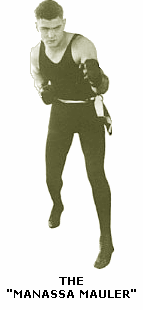 Nat Fleischer, an authority on the heavyweights, said the young hobo had the punch of Sullivan, the speed of Corbett, the cunning of Johnson and the strength of Jeffries. He said he had "a neck like a bull, a granite jaw and fists like iron." He was talking about Jack Dempsey.
Nat Fleischer, an authority on the heavyweights, said the young hobo had the punch of Sullivan, the speed of Corbett, the cunning of Johnson and the strength of Jeffries. He said he had "a neck like a bull, a granite jaw and fists like iron." He was talking about Jack Dempsey.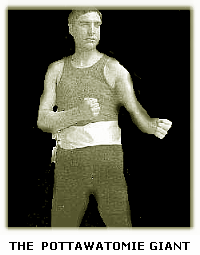 Dempsey came up fast. He beat everyone in sight. In 1918, he knocked out Fred Fulton and Battling Levinsky and he was ready for a shot at Jess Willard's title. He got it on July 4, 1919, in Toledo. The Pottawatomie Giant towered five inches over the twenty-three-year-old upstart, outweighing him by 58 pounds and enjoying a 5-1/2-inch edge in reach. But Willard was over the hill. Dempsey floored him seven times in the first round, heard Referee Ollie Pecord count him out and left the ring on the arm of a radiantly happy manager--Jack (Doc) Kearns had bet $10,000 to $100,000 on a first round KO. But the fight wasn't over. In the roar of 19,000 voices, the referee had counted Willard out after the bell. Dempsey, called back, slashed away at the gallant champion for two more rounds. Then the bloody, hulking
Dempsey came up fast. He beat everyone in sight. In 1918, he knocked out Fred Fulton and Battling Levinsky and he was ready for a shot at Jess Willard's title. He got it on July 4, 1919, in Toledo. The Pottawatomie Giant towered five inches over the twenty-three-year-old upstart, outweighing him by 58 pounds and enjoying a 5-1/2-inch edge in reach. But Willard was over the hill. Dempsey floored him seven times in the first round, heard Referee Ollie Pecord count him out and left the ring on the arm of a radiantly happy manager--Jack (Doc) Kearns had bet $10,000 to $100,000 on a first round KO. But the fight wasn't over. In the roar of 19,000 voices, the referee had counted Willard out after the bell. Dempsey, called back, slashed away at the gallant champion for two more rounds. Then the bloody, hulking 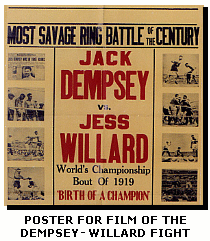 bruiser sank onto his stool--jaw broken, right eye closing, cheekbone split, two teeth gone--and murmured through swollen lips to his seconds, "I guess I'm beaten." He couldn't come out for the fourth, and an ex-hobo, lately under attack for not fighting in the war, was heavyweight champion of the world and the Million Dollar Gate was at hand.
bruiser sank onto his stool--jaw broken, right eye closing, cheekbone split, two teeth gone--and murmured through swollen lips to his seconds, "I guess I'm beaten." He couldn't come out for the fourth, and an ex-hobo, lately under attack for not fighting in the war, was heavyweight champion of the world and the Million Dollar Gate was at hand.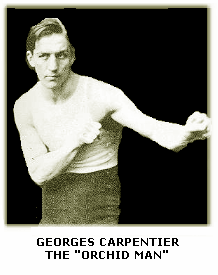 didn't belong in the ring with Dempsey. Tex Rickard had him train in secrecy lest his shortcomings attract undue notice in the papers. And before the fight the promoter dropped into the champion's dressing room.
didn't belong in the ring with Dempsey. Tex Rickard had him train in secrecy lest his shortcomings attract undue notice in the papers. And before the fight the promoter dropped into the champion's dressing room.  "Listen, Jack," he said, "the best people in the world are here today and this is just the beginning. Don't knock down the show. Don't kill the sonuvabitch."
"Listen, Jack," he said, "the best people in the world are here today and this is just the beginning. Don't knock down the show. Don't kill the sonuvabitch."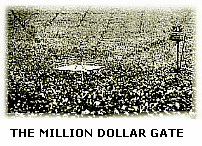 The band played "The Marseillaise" and then Dempsey cut up the soldier of France with short hooks to show him that the Yanks were in charge. Carpentier landed with a right in the second and some of the boxing journalists hailed it as a "staggering" blow but H.L. Mencken, sitting among all the perfumed ladies at ringside, counted twenty-five hard punches by Dempsey in one thirty-second exchange after he had supposedly been hurt. Mencken said any notion that
The band played "The Marseillaise" and then Dempsey cut up the soldier of France with short hooks to show him that the Yanks were in charge. Carpentier landed with a right in the second and some of the boxing journalists hailed it as a "staggering" blow but H.L. Mencken, sitting among all the perfumed ladies at ringside, counted twenty-five hard punches by Dempsey in one thirty-second exchange after he had supposedly been hurt. Mencken said any notion that 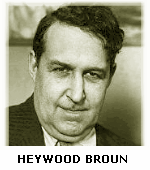 Carpentier had damaged Dempsey in any way was "apocryphal, bogus, hollow and null, imbecile, devoid of substance."
Carpentier had damaged Dempsey in any way was "apocryphal, bogus, hollow and null, imbecile, devoid of substance."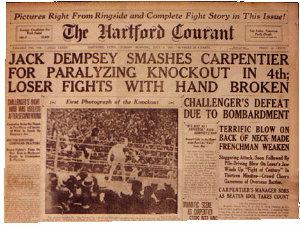 It took four or five minutes to revive the courageous idol of France and the crowd hailed him even as he lay bleeding on the canvas. Joe Humphreys had introduced Dempsey as a man "on whom every red-blooded American pins his hopes this day," but the red-blooded Americans in the wooden soup bowl liked the Frenchman better because he had served in his country's army.
It took four or five minutes to revive the courageous idol of France and the crowd hailed him even as he lay bleeding on the canvas. Joe Humphreys had introduced Dempsey as a man "on whom every red-blooded American pins his hopes this day," but the red-blooded Americans in the wooden soup bowl liked the Frenchman better because he had served in his country's army.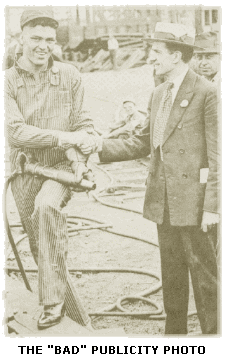 Dempsey testified that her son was indeed the sole support of a large brood--his own family--come on hard times in 1917 and 1918. Beyond that, the fighter produced evidence that the Secretary of the Navy had asked him to stay in civilian clothes because he could do more good for the war effort that way; he had raised $200,000 for the Red Cross. What hurt Dempsey, down through the years, was a wartime publicity photo showing him supposedly at toil in a Philadelphia shipyard. He had overalls on but his feet were shod in patent leather. The picture, naturally, was published very widely. Nat Fleischer, Dempsey's biographer, always defended him on the slacker charge but conceded in later years that many boxers had ducked World War I.
Dempsey testified that her son was indeed the sole support of a large brood--his own family--come on hard times in 1917 and 1918. Beyond that, the fighter produced evidence that the Secretary of the Navy had asked him to stay in civilian clothes because he could do more good for the war effort that way; he had raised $200,000 for the Red Cross. What hurt Dempsey, down through the years, was a wartime publicity photo showing him supposedly at toil in a Philadelphia shipyard. He had overalls on but his feet were shod in patent leather. The picture, naturally, was published very widely. Nat Fleischer, Dempsey's biographer, always defended him on the slacker charge but conceded in later years that many boxers had ducked World War I.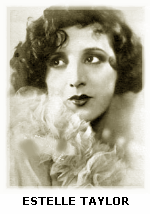 Dempsey had to wait a quarter of a century to redeem himself. In World War II, as a Coast Guard commander detailed to the physical training program, he went into Tarawa under fire--an "old man" in his late forties among a bunch of boys.
Dempsey had to wait a quarter of a century to redeem himself. In World War II, as a Coast Guard commander detailed to the physical training program, he went into Tarawa under fire--an "old man" in his late forties among a bunch of boys.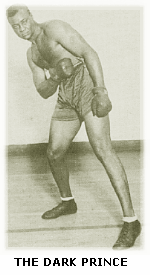 Why didn't they fight? It would be wrong to imagine that the champion was afraid of the bruising ex-stevedore from New Orleans. Dempsey was a great fighter. He had golden fists and a good jaw and the killer instinct. Yet he was in the position of ducking Wills, the most formidable contender, year after year.
Why didn't they fight? It would be wrong to imagine that the champion was afraid of the bruising ex-stevedore from New Orleans. Dempsey was a great fighter. He had golden fists and a good jaw and the killer instinct. Yet he was in the position of ducking Wills, the most formidable contender, year after year.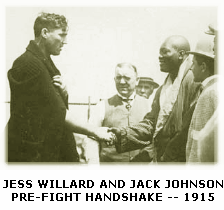 Jack Johnson held the title from 1910 to 1915 and the big man's easy victories over a string of white contenders in that period had been unpopular--among whites, that is. Moreover, come the Twenties, the hooded gentry was riding high, bed sheets flapping in the wind, and lynching fever was strong in the South. The bigger brains in Washington quite likely did fear that a
Jack Johnson held the title from 1910 to 1915 and the big man's easy victories over a string of white contenders in that period had been unpopular--among whites, that is. Moreover, come the Twenties, the hooded gentry was riding high, bed sheets flapping in the wind, and lynching fever was strong in the South. The bigger brains in Washington quite likely did fear that a 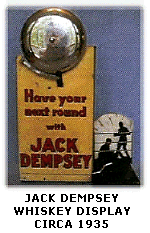 mixed heavyweight fight would fan the flames.
mixed heavyweight fight would fan the flames.